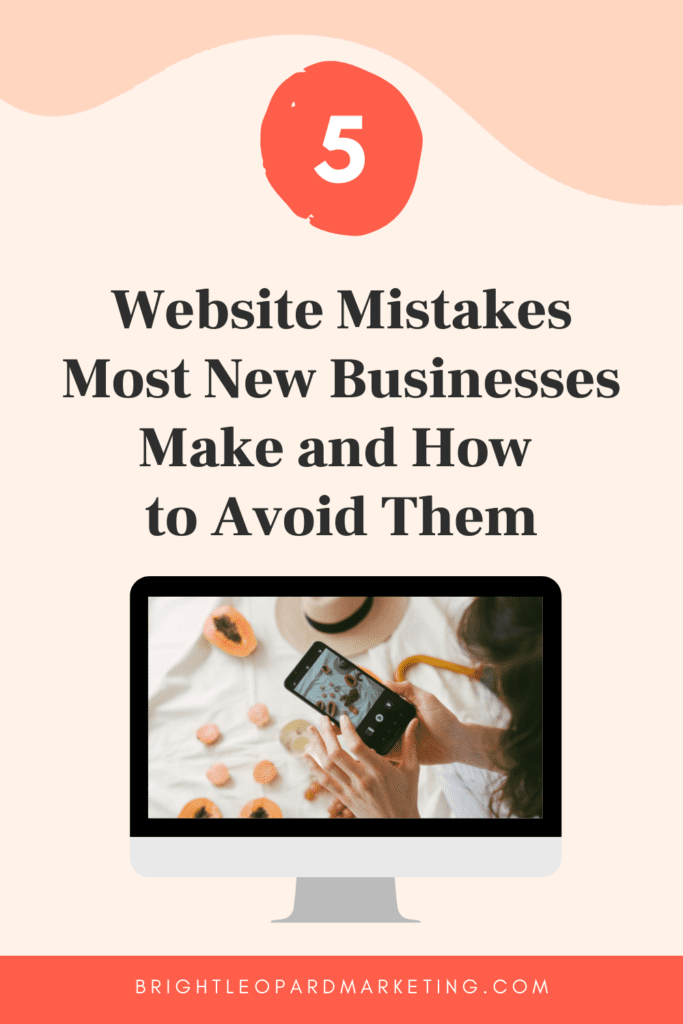Most people don’t start a business knowing everything they need to do upfront.
It is a process and a journey that requires patience and growth. When it comes to setting up a new company and launching a website, it is easy to avoid ‘scary’ tasks that you don’t fully understand or want to deal with.
In this feature, I am going to point out 5 website mistakes most new businesses make when starting. The great thing is that all of these mistakes are totally fixable – so don’t panic. You have got this.
Now, I am no legal expert but I have worked at multiple six-figure businesses throughout my career and I want to use this experience to highlight ways for you to protect yourself and your business from making mistakes you weren’t aware of.
Check your company name is available
Coming up with a name for your company is one of the most difficult tasks, ever! So before buying a website domain or setting up your social media accounts, it is worth checking to see if your desired company name is available on Companies House.
It is also worth noting that there are certain words that you can’t include in your company’s name without getting permission. Words like royal, queen, king, for example. It is best to do some research to ensure that you can register the name of your choice.
Not registering as a business
If you are a new company based in England that is making money, you will need to register as a business. There are a few options available, so make sure that you take the time to do your research to make sure you pick the right option for you.
The main choices are registering as a Limited Company, a Sole Trader, or a Partnership. For more information, click here.
It is really important to make sure you cover this set to protect yourself legally.
Privacy Policy and Cookie Policy
UK-based companies are required to include a Privacy Policy and a Cookie Policy on their website.
As a general rule, the Privacy Policy will tell your users what data you collect, how you collect it (opt-in forms, pixels), and how you safely store it. It is vital that you also include information about how a user can request their information to be removed or deleted.
This information should be placed at the bottom of your website – usually in the footer – and must be accurate and up-to-date.
There is no point in copying a Privacy Policy from another website as the information and data won’t be relevant for your website or business. It is always best to seek legal advice on this matter as it is an incredibly important part of your website. A qualified legal professional will be able to create a Privacy Policy and Cookies Policy for your website and this approach will ensure that your company is set up for long-term success.
Terms of Use
Terms of Use are different from a Privacy Policy. Terms of Use sets out how people access and use your website.
It defines the rules of your website for visitors and it helps you to protect your content and intellectual property.
Again, this is a document that a legal professional should put together for you, once they have a clear understanding of your company and what you do.
GDPR – data management
GDPR stands for General Data Protection Regulation and it is vital for all businesses that collect information to have a clear process in place for secure data management.
To gain a better understanding of GDPR, it is best to seek professional advice or do some research on how to manage your company’s data.
The ICO is a great place to start and you can access their guide to GDPR here.
Most small businesses, like mine, are required to be registered with the ICO. You should determine whether your business is required to register by heading to their website.
It is really easy to feel overwhelmed when setting up your new business but it doesn’t have to be.
If you are looking for a business coach to provide you with direction on how to set up your website for success, simply fill out the form on the Bright Leopard Marketing Contact page to explore how you can work with me.







